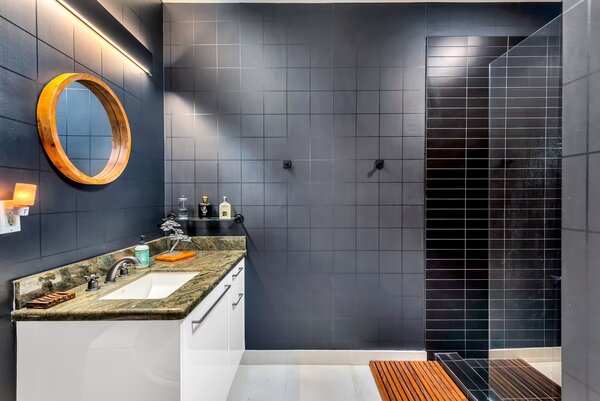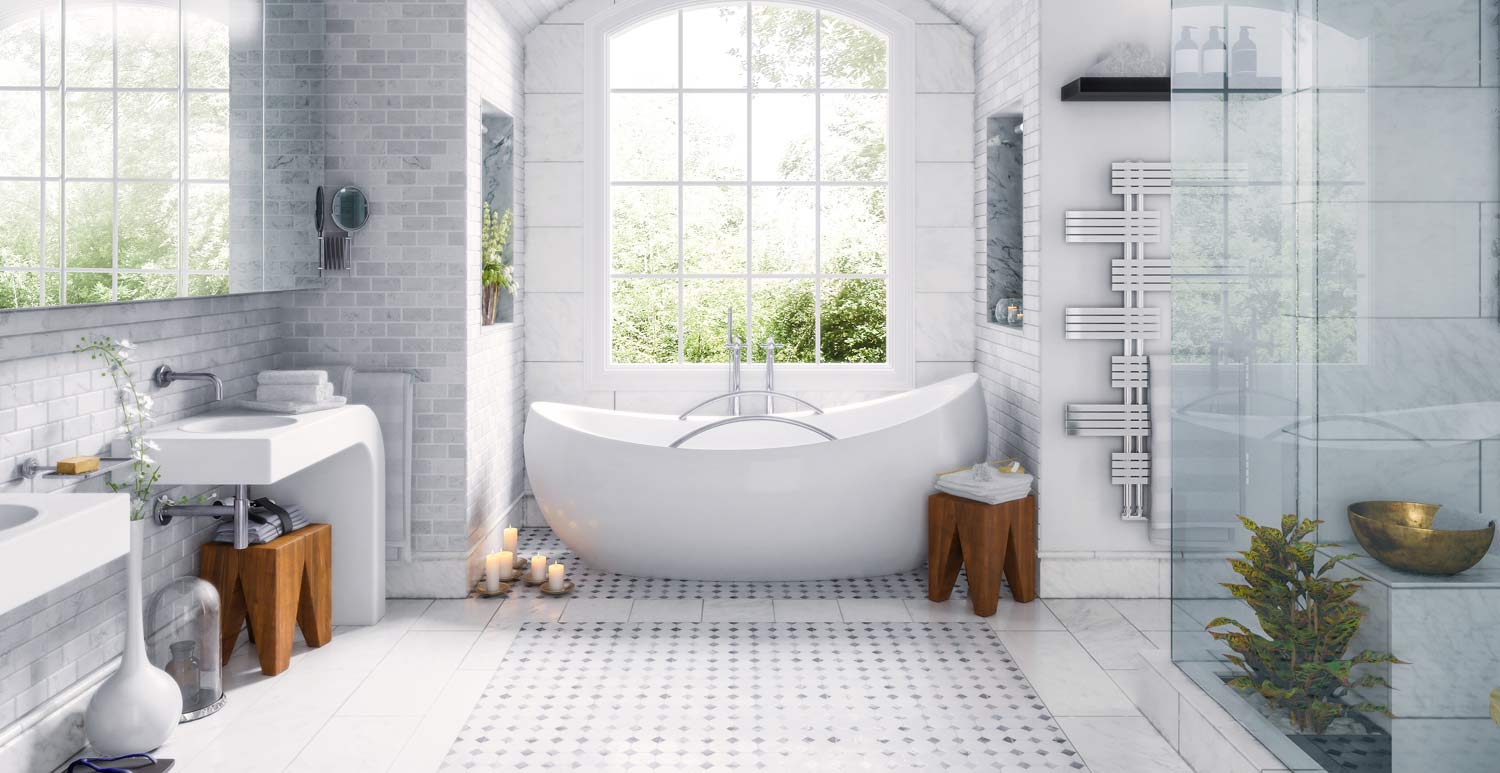What Makes Subway Tiles Timelessly Beautiful in Bathroom Design?

When it comes to timeless beauty in bathroom design, few materials can rival the classic appeal of subway tiles. These versatile and iconic tiles have been a staple in interior design for over a century, and their popularity shows no signs of waning.
In this article will explore the history and origin of subway tiles bathroom, the advantages of using them in bathroom design, different patterns and layouts, colours and finishes, tips for incorporating them, commercial applications, maintenance and cleaning, as well as provide inspirational examples of subway tile bathroom designs.
History and origin of subway tiles
Subway tiles first gained prominence in the early 20th century when they were used to adorn the walls of City subway stations. Designed to be durable, easy to clean, and visually appealing, these tiles quickly became a symbol of urban sophistication. Their simple yet elegant rectangular shape, typically measuring 3 inches by 6 inches, made them a practical choice for covering large areas while maintaining a clean and streamlined aesthetic.
Advantages of using subway tiles in bathroom design
One of the key advantages of subway tiles bathroom design is their timeless appeal. Unlike trendy materials that may go out of style within a few years, subway tiles have stood the test of time and continue to be a popular choice for both traditional and contemporary bathrooms. Their clean lines and classic look can complement a wide range of design styles, from vintage to modern.
In addition to their aesthetic appeal, subway tiles are also highly versatile. They come in a variety of colours, finishes, and patterns, allowing for endless design possibilities. Whether you prefer a sleek and monochromatic look or a bold and colourful statement, subway tiles can be customised to suit your personal style and preferences.
Moreover, subway tiles are practical and easy to maintain. Their smooth surface makes them resistant to stains and easy to clean with just a damp cloth or mild cleaning solution. This makes them an ideal choice for bathrooms, where cleanliness and hygiene are of utmost importance.

Different patterns and layouts for subway tiles
While the traditional brick pattern is the most common layout for subway tiles, there are several other patterns that can add visual interest and create a unique look in your bathroom. Some popular patterns include herringbone, basketweave, and subway tile with a contrasting grout colour. These patterns can be used to create focal points, accent walls, or to add texture and dimension to your bathroom design.
When it comes to the layout of subway tiles, you can choose between a horizontal or vertical orientation. Horizontal tiles can create a sense of width and openness, while vertical tiles can make the ceiling appear higher and add a sense of grandeur to the space. Experimenting with different layouts can help you achieve the desired aesthetic and enhance the overall design of your bathroom.
Colors and finishes of subway tiles for bathrooms
Subway tiles are available in a wide range of colours and finishes, allowing you to create a bathroom design that perfectly suits your taste and style. Classic white subway tiles are a popular choice for their timeless elegance and ability to brighten up any space. They can be paired with contrasting grout for a bold look or with matching grout for a more subtle effect.
If you’re looking to add a pop of colour to your bathroom, subway tiles come in various shades, including pastels, neutrals, and vibrant hues. These coloured tiles can be used as accents or to create a statement wall, adding visual interest and personality to your bathroom design.
In terms of finishes, subway tiles can be found in glossy, matte, or textured options. Glossy finishes reflect light and create a sleek and modern look, while matte finishes offer a more understated and sophisticated feel. Textured subway tiles can add depth and visual texture to your bathroom walls, creating a unique and tactile experience.
Tips for incorporating subway tiles in bathroom design
When incorporating subway tiles into your bathroom design, there are a few tips to keep in mind to ensure a cohesive and visually pleasing result. First, consider the size of your bathroom and the scale of the tiles. In smaller bathrooms, using larger tiles can create an illusion of space, while smaller tiles can add detail and texture in larger bathrooms.
Another tip is to experiment with grout colours. While white or light-coloured grout is the most common choice, using a contrasting grout colour can create a striking effect and highlight the pattern of the tiles. Dark grout can add depth and drama, while coloured grout can complement or contrast with the colour of the tiles, depending on the desired aesthetic.
In terms of placement, tiles can be used on all walls of the bathroom or as a feature wall. Consider the overall design of your bathroom and the focal points you want to highlight. For example, using tiles as a backsplash behind the vanity or in the shower area can create a focal point and draw attention to these areas.
Commercial applications of subway tiles in bathrooms
While subway tiles are commonly used in residential bathrooms, they also have numerous commercial tiles applications. Their durability, ease of maintenance, and timeless appeal make them a popular choice for hotels, restaurants, spas, and other public spaces. Subway tiles can create a clean and hygienic environment while adding a touch of sophistication and elegance to the overall design.
In commercial settings, subway tiles can be used not only on walls but also on floors, countertops, and even ceilings. They can be combined with other materials, such as natural stone or metal, to create a visually interesting and durable surface. The versatility of subway tiles makes them a practical and stylish choice for a wide range of commercial bathroom designs.
Maintenance and cleaning of subway tiles in bathrooms
One of the advantages of subway tiles bathroom design is their low maintenance requirements. To keep your subway tiles looking their best, regular cleaning is essential. Simply wipe them down with a damp cloth or sponge and a mild cleaning solution. Avoid using abrasive cleaners or scrub brushes, as they can scratch the surface of the tiles.
If your subway tiles have grout lines, it’s important to keep them clean as well. Grout can easily trap dirt and grime, so regular maintenance is necessary to prevent discolouration. Use a grout cleaner and a soft brush to scrub away any stains ordiscolouration, and consider applying a grout sealer to protect against future staining.
Conclusion
In conclusion, subway tiles are a timeless and versatile choice for bathroom design. Whether you prefer a classic white look or want to experiment with bold colours and patterns, subway tiles offer endless possibilities for creating a stylish and functional space.
From their origins in subway stations to their widespread popularity in residential and commercial settings today, subway tiles bathroom continue to captivate with their simplicity, durability, and enduring appeal. Whether you’re renovating your bathroom or designing a new space from scratch, consider incorporating subway tiles for a touch of timeless beauty that will never go out of style.







